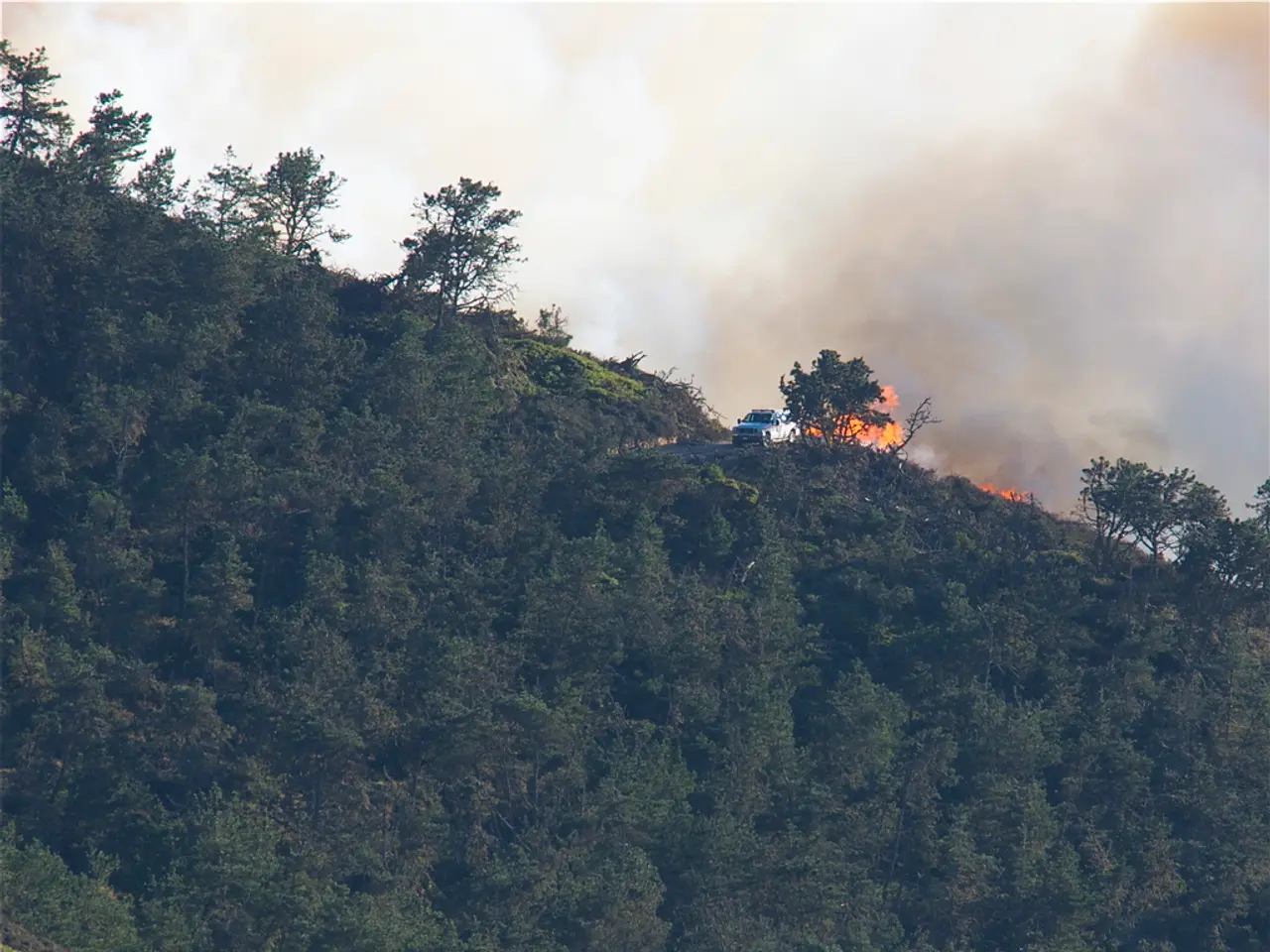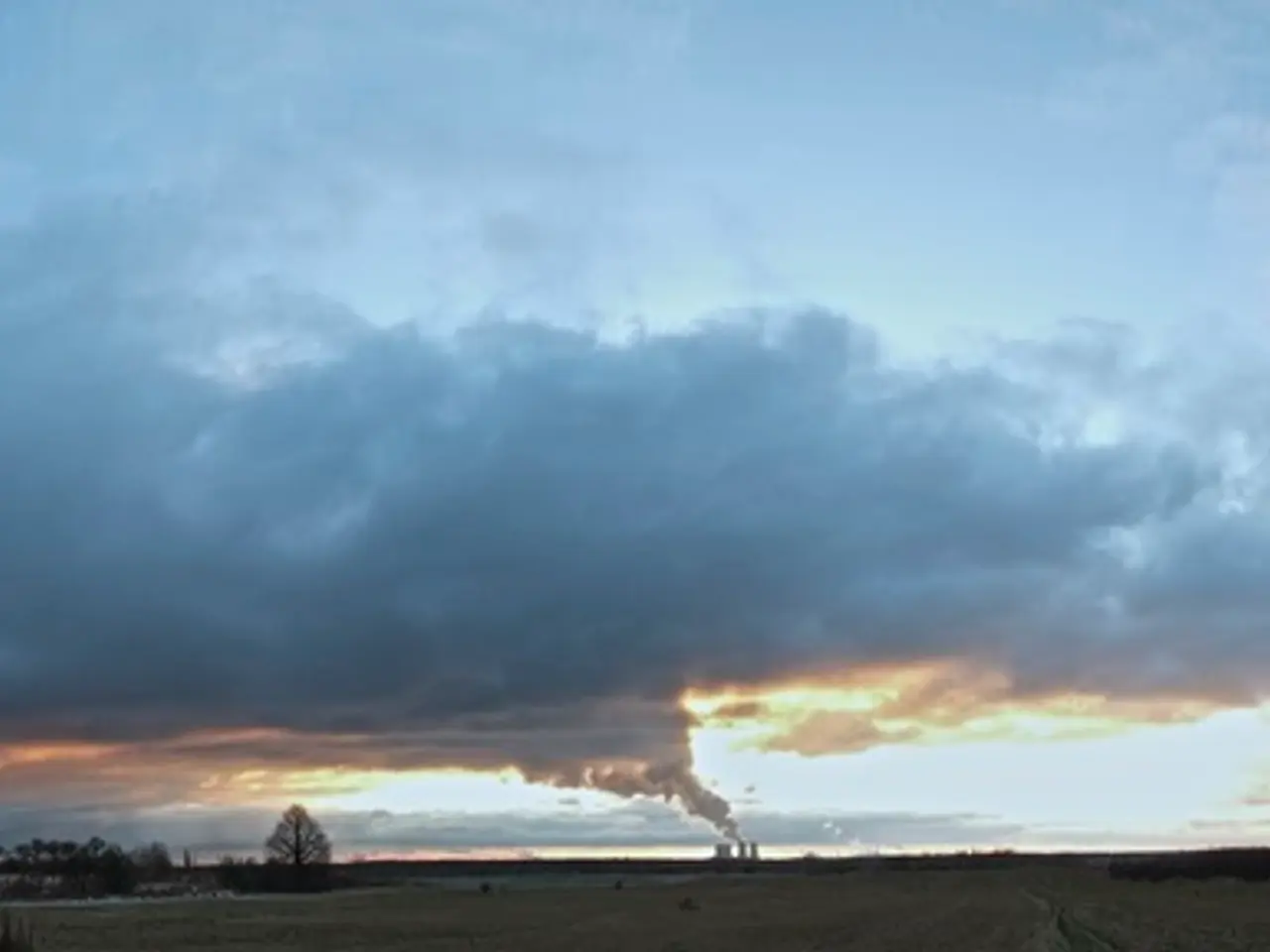Southern fires in Europe's south and Turkey show signs of dissipating, yet temperatures continue to spike upward
Southern Europe and Turkey are grappling with a severe wildfire crisis, exacerbated by record heatwaves and dry, windy conditions throughout the summer of 2025. Recent developments show that firefighters have made significant progress in controlling many of the recent major fires, but challenges remain due to ongoing hot, dry, and sometimes windy weather fostering fire risk.
In Turkey, a new modern temperature record of 50.5°C was recorded in late July in Şırnak province, topping the previous record from August 2023 by a full degree. This extreme heat has led to very high wildfire risk, with Turkish firefighting efforts mobilizing significant resources, including 11 aircraft fighting blazes near Izmir. The Turkish Forestry Minister has warned of a "very risky week" ahead for wildfires. The Turkish Red Crescent has supported firefighters with water, food, and first aid in multiple locations, including Bursa.
In southern Europe, firefighters have largely succeeded in containing devastating wildfires across various countries, although the situation remains critical in some areas. Northern Portugal near Ponte da Barca saw a long-lasting fire nearly under control by early August despite unfavorable weather. Another major fire near Arouca in Portugal was also contained. Southern Spain benefited from some rainfall which helped nearly extinguish a blaze near Ávila. Conversely, southern Italy, especially Sicily, continues to suffer from wildfire outbreaks with more than 3,700 fires recorded from May to July. Sardinia also faced several fires that have since been extinguished.
The European Commission’s Joint Research Centre forecasts that while fire weather conditions shown by the Fire Weather Index have generally improved across Europe since late July, temperatures remain warmer than usual across much of the continent, particularly in western, central, and eastern Europe. Southern Europe is expected to have near-normal rainfall patterns but the overall dry and hot conditions still pose a significant risk for wildfires continuing throughout early August.
Ongoing challenges include the persistence of extreme heatwaves (>40°C in some areas), dry winds that turn dry vegetation into tinder, and the strain on firefighting resources. The situation is complicated further by political and coordination issues, such as those reported in Cyprus which, despite prior improved preparations, faces difficulties amid the escalating wildfire crisis.
In summary, the current wildfire situation in Southern Europe and Turkey in early August 2025 involves:
- Record-breaking heat and ongoing heatwaves driving fire risk to very high levels in Turkey and Southern Europe.
- Major fires largely contained but not fully extinguished; firefighting efforts remain intense, especially in Portugal, Spain, Italy, and Turkey.
- Weather forecasts show persistent heat with some relief from rain in limited spots, but dry and warm conditions dominate.
- Fire weather indices improving slightly but overall conditions still conducive to fire spread.
- Local political and logistical issues affecting wildfire response effectiveness in some areas.
Elisio Oliveira, head of civil protection in Portugal, stated that temperatures in the coming days will exceed 40 degrees Celsius, adding to the challenges faced by firefighters in the region. Despite the ongoing struggles, relief has been reported in particularly affected areas of Turkey, but specific details are not provided.
- The high temperatures predicted for the coming days in Portugal, exceeding 40 degrees Celsius, will further challenge the efforts of firefighters dealing with wildfires in the region.
- In the realm of environmental science, the ongoing severe wildfire crisis in Southern Europe and Turkey is a significant concern, with weather-forecasting experts continuously monitoring climate-change-induced hot and dry conditions that increase wildfire risk.
- The Turkish Red Crescent, as part of their support for firefighters, has been supplying water, food, and first aid in multiple locations, including Bursa, demonstrating the critical role of such environmental-science organizations in weather-related emergencies.








